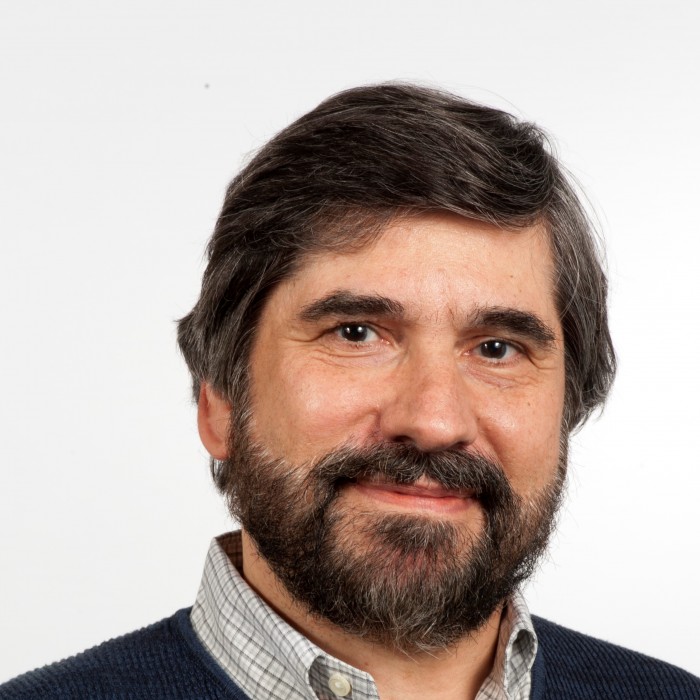Control Seminar
Bridging the Cap between Optimal and Real-Time Safe Control: Making Autonomous Vehicles a Reality
This event is free and open to the publicAdd to Google Calendar

***Event will take place via Zoom. Zoom link and password will be distributed to the Controls Group e-mail list-serv. To join this list-serv, please send an (empty) email message to [email protected] with the word “subscribe” in the subject line. Zoom information is also available upon request to Katherine Godwin ([email protected]).
ABSTRACT: We address the problem of optimizing the performance of a dynamic system while satisfying hard safety constraints at all times. Implementing an optimal control solution incurs a high computational cost, which limits it to simple linear dynamics, simple objective functions, and ignoring noise. Control Barrier Functions (CBFs) may be used for safety-critical control at the expense of sub-optimal performance. We present a real-time control framework that combines trajectories generated through optimal control with the computationally efficient CBF method providing safety guarantees. A tractable optimal solution is first obtained for a linear or linearized system, then we optimally track this solution while using CBFs to guarantee the satisfaction of all state and control constraints. This Optimal Control and CBF (OCBF) framework is applied to autonomous vehicles in transportation systems where the objective is to jointly minimize the travel time and energy consumption of each vehicle subject to speed, acceleration, and speed-dependent safety constraints. When considering complex objective functions, nonlinear dynamics, noise, and passenger comfort requirements for which analytical optimal control solutions are unavailable, we adapt the OCBF approach to such problems. Simulation examples confirm that the resulting behaviors are not only provably safe but also perform significantly better than human-driven vehicles.
BIO: Christos G. Cassandras is Distinguished Professor of Engineering at Boston University. He is Head of the Division of Systems Engineering, Professor of Electrical and Computer Engineering, and co-founder of Boston University’s Center for Information and Systems Engineering (CISE). He received a B.S. degree from Yale University, M.S.E.E from Stanford University, and S.M. and Ph.D. degrees from Harvard University. In 1982-84 he was with ITP Boston, Inc. where he worked on the design of automated manufacturing systems. In 1984-1996 he was a faculty member at the Department of Electrical and Computer Engineering, University of Massachusetts/Amherst. He specializes in the areas of discrete event and hybrid systems, cooperative control, stochastic optimization, and computer simulation, with applications to computer and sensor networks, manufacturing systems, and transportation systems. He has published over 450 refereed papers in these areas, and six books. He has guest-edited several technical journal issues and serves on several journal Editorial Boards. In addition to his academic activities, he has worked extensively with industrial organizations on various systems integration projects and the development of decision-support software. He has most recently collaborated with MathWorks, Inc. in the development of the discrete event and hybrid system simulator SimEvents.
Dr. Cassandras was Editor-in-Chief of the IEEE Transactions on Automatic Control from 1998 through 2009 and has also served as Editor for Technical Notes and Correspondence and Associate Editor. He is currently an Editor of Automatica. He was the 2012 President of the IEEE Control Systems Society (CSS). He has also served as Vice President for Publications and on the Board of Governors of the CSS, as well as on several IEEE committees, and has chaired several conferences. He has been a plenary/keynote speaker at numerous international conferences, including the American Control Conference in 2001, the IEEE Conference on Decision and Control in 2002 and 2016, and the 20th IFAC World Congress in 2017 and has also been an IEEE Distinguished Lecturer.
He is the recipient of several awards, including the 2011 IEEE Control Systems Technology Award, the Distinguished Member Award of the IEEE Control Systems Society (2006), the 1999 Harold Chestnut Prize (IFAC Best Control Engineering Textbook) for Discrete Event Systems: Modeling and Performance Analysis, a 2011 prize and a 2014 prize for the IBM/IEEE Smarter Planet Challenge competition (for a “Smart Parking” system and for the analytical engine of the Street Bump system respectively), the 2014 Engineering Distinguished Scholar Award at Boston University, several honorary professorships, a 1991 Lilly Fellowship and a 2012 Kern Fellowship. He is a member of Phi Beta Kappa and Tau Beta Pi. He is also a Fellow of the IEEE and a Fellow of the IFAC and holds a Chair Professorship at the Department of Automation, Tsinghua University.
 MENU
MENU 
